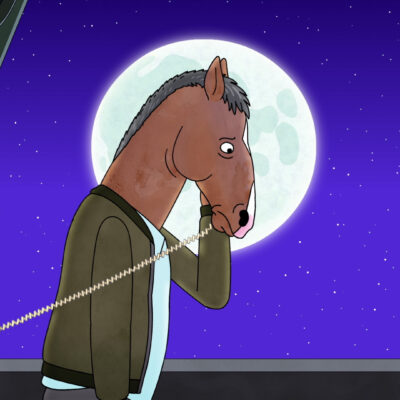Bringing awareness to the downfalls of therapy
You’re sitting on a chair looking at a stranger waiting for you to tell them about your deepest secrets and your biggest fears. Your mind is racing and those sneaky thoughts start to crawl around in your mind. Those thoughts grow and begin to speak. They say “What if they judge you?” or “What if they spread your secrets around?” You take a big gulp as your anxiety starts to settle. You look up and see the lack of emotion on the stranger’s face and then you think to yourself, “Is it even worth all the money to be here?” So you sit there feeling small and out of place. The snickers from the voices in your head don’t die down and the built-up tension weighs you down as the time you paid for continues to dwindle.
Now imagine that stranger was your therapist. These emotions can all be felt during a therapy session. It isn’t strange to go to someone to help with whatever difficulties that you might be going through. Therapy is something everyone has heard about at some point in their life. If you have never heard about it, it involves the treatment of mental health. The most common form of therapy is talk therapy, otherwise known as psychotherapy. You might have heard about the two sides of therapy. On one half you hear praises coming from people and on the other, you hear the side where people have only negative thoughts concerning therapy. Listen, I’m not against therapy. I’ve dealt with it before. I’ve experienced both good and the bad, but while I sit here, I never actually seem to consider why some think therapy is so “bad”. The process of unpacking your trauma can have downfalls that should be acknowledged. While talking about your problems can help, it also brings up all the trauma you’ve gone through in the past. The therapist might not necessarily force you to talk but the constant questions about tense situations trigger memories that someone might not be ready to talk about and deal with. The article “Misjudged Therapy” says, “Counseling and other psychological therapies can do more harm than good if they are of poor quality or the wrong type, according to a major new analysis of their outcomes. Talking therapies are usually helpful to distressed people, but in a minority of cases where it goes wrong it can leave vulnerable people more depressed than when they first sought help, the authors say.” Normally, people brush over the idea of triggers during therapy. People sometimes forget that therapy re-opens or even continues to hurt your wounds. This can cause so many dangerous cycles to start again or even begin for that matter. Have you ever thought about therapy grooming liars? No, just think about it. We are supposed to tell our therapist everything. It is a system where we confide in a person who is simply getting paid to listen. Even though they are supposed to help us they still have the responsibility to tell someone if you’re in danger and you know what happens after that. I’ve been in therapy for quite some time now and I know that it is a cycle of questions that someone asks you to…help you feel better? In my mind, I do need someone to talk to, to prevent myself from breaking down but that doesn’t stop the logical side of my thinking. I filter what I say or just blatantly lie overall. This is for too many reasons. One being I don’t want to end up in a psychiatric hospital. A mental hospital is supposed to help you but there they treat you like you’re worth less than garbage found on the street. The article “Forgotten People- Legacy of Insane Asylums” states in an example, “Patients were also controlled by straight jackets and bed straps. They were often kept in cribs, and as a punishment, in coffins. The cemetery has no tombstones, just one marker in memory of all the patients buried there.” Mental hospitals have a dark history behind them. It was said to be a place for people who seemed unfit to live with “normal people.” At the time people who weren’t normal were defined as: the blind, the deaf, misbehaved teenagers, unhappy wives, criminals, etc. This caused stigmatization when it comes to mental hospitals. Due to how patients are being treated as if they were prisoners, in their eyes, that’s what these hospitals have become. Even if we can’t necessarily prove this to be true, society will still make you feel bad for having been admitted into one. They become a place where there is no escape.
No one wants someone to send them away because they think that they have done all that they could do. A mental hospital doesn’t make things necessarily better, it can make the patient worse both mentally and physically. I do appreciate trying to go further to get help for the patients but I think the therapist should consider that logic and the law and think about how this decision would truly affect their patient. Let’s get this straight, therapy is not cheap either. It’s so expensive, even though mental health doesn’t only affect people in a higher class. We all need to understand that even though we need to treat mental health, a lot of people don’t have the money to afford such things. People go to therapy due to stress in their lives. We know that stress is due to a large workload, bills, and so many otherworldly things. The article “How Much Does Therapy Cost” says, “Mental health providers in many cities charge roughly $75 to $150 per 45-minute session, while rates in New York City can be upwards of $200. Therapists typically recommend meeting weekly, so based on these estimates, you’d be looking at a minimum out-of-pocket cost of $3,200 per year”. That’s way too much for so many people who need it. In the United States, you can see that the minimum wage average is $7.25 an hour in most states. Looking at the comparison it almost seems impossible for someone who earns minimum wage to afford therapy. Therapy should be something that should be offered to everyone at an affordable rate to them. No matter the class of someone, people all suffer challenges and they deserve to be properly fixed. Something that should better your wellbeing. Therapy is not ineffective. I go to therapy and it can be very helpful in the betterment of my mental health. But I do acknowledge the downfalls. There is an argument there that there are bad sides of therapy that can ultimately ruin the entirety of someone while it saves other people. Society should commend the few that successfully recover with therapy, we should not ignore all the downfalls therapy comes with. Mental health is such a serious issue all over the world, yet no light has been fully brought to the negative side. I think that we should bring more awareness to the negatives because this is something that affects a whole subset group of people. I don’t think therapy is all bad. When you go to therapy you are given a chance to build relationships and better yourself. With therapy, you develop skills that help you cope, and this lasts a lifetime. If you look at therapy through a lens that eliminates all its problems, therapy becomes portrayed as such a life-changing experience that everyone would hope to live and know the feeling of being heard.
If I could change something about the issues with therapy, I would honestly make it affordable to people in lower-class families. I would also try to make therapy more of a “friend” or volunteer experience than someone who is getting paid to do so. Undoubtedly, it wouldn’t be free but I want therapists to treat their patients like a human rather than a customer for they are seeking money. I want therapy to truly encompass what a safe place is. I want it to be so safe that you aren’t asked to tell the therapist your problems but instead, I want it to be something that comes naturally. Someone that won’t make you worried about the fear of oversharing and how that in itself causes so much anxiety. That is all I am asking.








